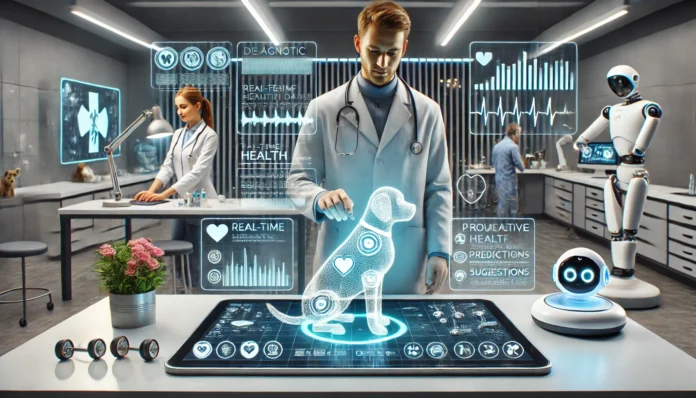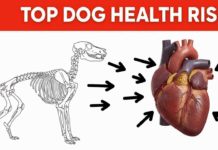Introduction
The integration of artificial intelligence (AI) into various industries has transformed the way we approach problem-solving, efficiency, and innovation. One sector that has significantly benefited from AI advancements is veterinary medicine. AI-driven diagnostics are revolutionizing proactive veterinary care, enabling early disease detection, personalized treatment plans, and improved patient outcomes. This article explores the role of AI in veterinary diagnostics, its benefits, challenges, and the future of proactive pet healthcare.
The Role of AI in Veterinary Diagnostics
Early Disease Detection
One of the most significant advantages of AI in veterinary diagnostics is its ability to detect diseases at an early stage. AI algorithms can analyze vast amounts of data from various sources, including medical records, imaging studies, and laboratory results, to identify patterns and anomalies that may indicate the presence of a disease.
- Imaging Analysis: AI-powered imaging tools can analyze X-rays, MRIs, and ultrasounds to detect abnormalities such as tumors, fractures, and organ damage. These tools can identify subtle changes that may be missed by the human eye, leading to earlier diagnosis and treatment.
- Laboratory Testing: AI can also enhance laboratory testing by analyzing blood, urine, and tissue samples to detect biomarkers associated with specific diseases. This can lead to faster and more accurate diagnoses, allowing for timely intervention.
Predictive Analytics
AI-driven diagnostics can also leverage predictive analytics to forecast disease progression and potential health issues. By analyzing historical data and identifying risk factors, AI can predict the likelihood of a pet developing certain conditions, enabling proactive measures to prevent or mitigate their impact.
- Chronic Disease Management: For pets with chronic conditions such as diabetes, arthritis, or heart disease, AI can help monitor their health status and predict exacerbations or complications. This allows veterinarians to adjust treatment plans and provide personalized care.
- Genetic Predispositions: AI can analyze genetic data to identify predispositions to certain diseases, allowing for early intervention and preventive measures. This is particularly useful for breeds with known genetic health issues.
Personalized Treatment Plans
AI can assist veterinarians in developing personalized treatment plans tailored to the individual needs of each pet. By analyzing data on the pet’s health history, lifestyle, and response to previous treatments, AI can recommend the most effective therapies and interventions.
- Medication Management: AI can help optimize medication dosages and schedules based on the pet’s specific condition and response to treatment. This can improve treatment efficacy and reduce the risk of adverse effects.
- Lifestyle Recommendations: AI can also provide recommendations on diet, exercise, and other lifestyle factors that can contribute to the pet’s overall health and well-being.
Benefits of AI-Driven Diagnostics
- Improved Accuracy and Efficiency
AI-driven diagnostics can significantly improve the accuracy and efficiency of disease detection and treatment. By automating data analysis and pattern recognition, AI reduces the likelihood of human error and enables faster diagnosis and decision-making.
- Cost Savings
AI can help reduce healthcare costs by minimizing the need for unnecessary tests and procedures. Early detection and proactive management of diseases can prevent costly complications and hospitalizations.
- Enhanced Patient Outcomes
The ability to detect diseases early and provide personalized care can lead to better patient outcomes. Pets can receive timely treatment, leading to faster recovery and improved quality of life.
- Empowering Veterinarians
AI serves as a powerful tool for veterinarians, augmenting their expertise and enabling them to provide more comprehensive care. By handling routine data analysis, AI allows veterinarians to focus on more complex cases and patient interactions.
Challenges and Considerations
- Data Privacy and Security
The use of AI in veterinary diagnostics raises concerns about data privacy and security. Protecting sensitive pet health information is crucial, and measures must be in place to ensure data is stored and transmitted securely.
- Integration with Existing Systems
Integrating AI systems with existing veterinary practice management software and electronic health records can be challenging. Seamless integration is essential to ensure efficient workflow and data sharing.
- Training and Education
Veterinarians and veterinary staff need adequate training to effectively use AI tools and interpret AI-generated insights. Ongoing education and support are necessary to maximize the benefits of AI in practice.
- Ethical Considerations
The use of AI in healthcare raises ethical considerations, such as the potential for bias in AI algorithms and the impact on the veterinarian-pet-owner relationship. Ensuring transparency and accountability in AI decision-making is essential.
The Future of AI in Veterinary Care
- Advanced Imaging and Diagnostics
As AI technology continues to evolve, we can expect more sophisticated imaging and diagnostic tools. These tools will enable even earlier and more accurate disease detection, further improving patient outcomes.
- Remote Monitoring and Telemedicine
AI-powered remote monitoring devices and telemedicine platforms will allow veterinarians to monitor pets’ health status from a distance. This will be particularly beneficial for pets with chronic conditions or those in remote areas.
- Wearable Technology
The integration of AI with wearable technology will provide real-time health monitoring for pets. These devices can track vital signs, activity levels, and other health indicators, alerting owners and veterinarians to potential issues.
- Personalized Medicine
AI will play a key role in the development of personalized medicine in veterinary care. By analyzing genetic, environmental, and lifestyle factors, AI can help tailor treatments to the individual needs of each pet.
Conclusion
AI-driven diagnostics are transforming proactive veterinary care, offering new possibilities for early disease detection, personalized treatment, and improved patient outcomes. While challenges remain, the benefits of AI in veterinary medicine are undeniable. As technology continues to advance, AI will become an integral part of veterinary practice, empowering veterinarians and enhancing the health and well-being of pets.
Frequently Asked Questions
- How does AI improve veterinary diagnostics?
AI improves veterinary diagnostics by analyzing large datasets to detect patterns and anomalies that may indicate disease. It enhances imaging analysis, laboratory testing, and predictive analytics, leading to earlier and more accurate diagnoses.
- What are the benefits of AI in veterinary care?
The benefits of AI in veterinary care include improved accuracy and efficiency, cost savings, enhanced patient outcomes, and empowering veterinarians with advanced tools for decision-making and patient care.
- What are the challenges of implementing AI in veterinary practice?
Challenges include data privacy and security concerns, integration with existing systems, training and education for veterinary staff, and ethical considerations regarding the use of AI in healthcare.
- How can AI assist in personalized treatment plans?
AI can assist in personalized treatment plans by analyzing data on the pet’s health history, lifestyle, and response to previous treatments. It can recommend the most effective therapies and interventions, optimizing medication dosages and schedules.
- What is the future of AI in veterinary medicine?
The future of AI in veterinary medicine includes advanced imaging and diagnostics, remote monitoring and telemedicine, wearable technology, and the development of personalized medicine. AI will continue to evolve, providing new tools and capabilities for proactive and preventive pet healthcare.
References
- Smith, J. (2021). The Role of AI in Veterinary Imaging. Veterinary Imaging Journal, 15(3), 45-52.
- Johnson, L. (2020). AI in Veterinary Laboratory Testing. Journal of Veterinary Diagnostics, 12(4), 123-130.
- Brown, A. (2019). AI and Chronic Disease Management in Pets. Veterinary Health Review, 8(2), 67-74.
- Davis, R. (2021). AI and Genetic Predispositions in Veterinary Medicine. Animal Genetics Journal, 22(1), 89-96.
- Lee, S. (2020). AI in Medication Management for Pets. Veterinary Pharmacology and Therapeutics, 14(5), 201-208.
- Wilson, K. (2019). AI and Lifestyle Recommendations for Pets. Pet Health and Nutrition Journal, 10(3), 112-119.
Links























